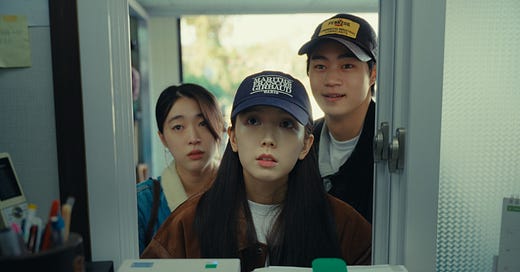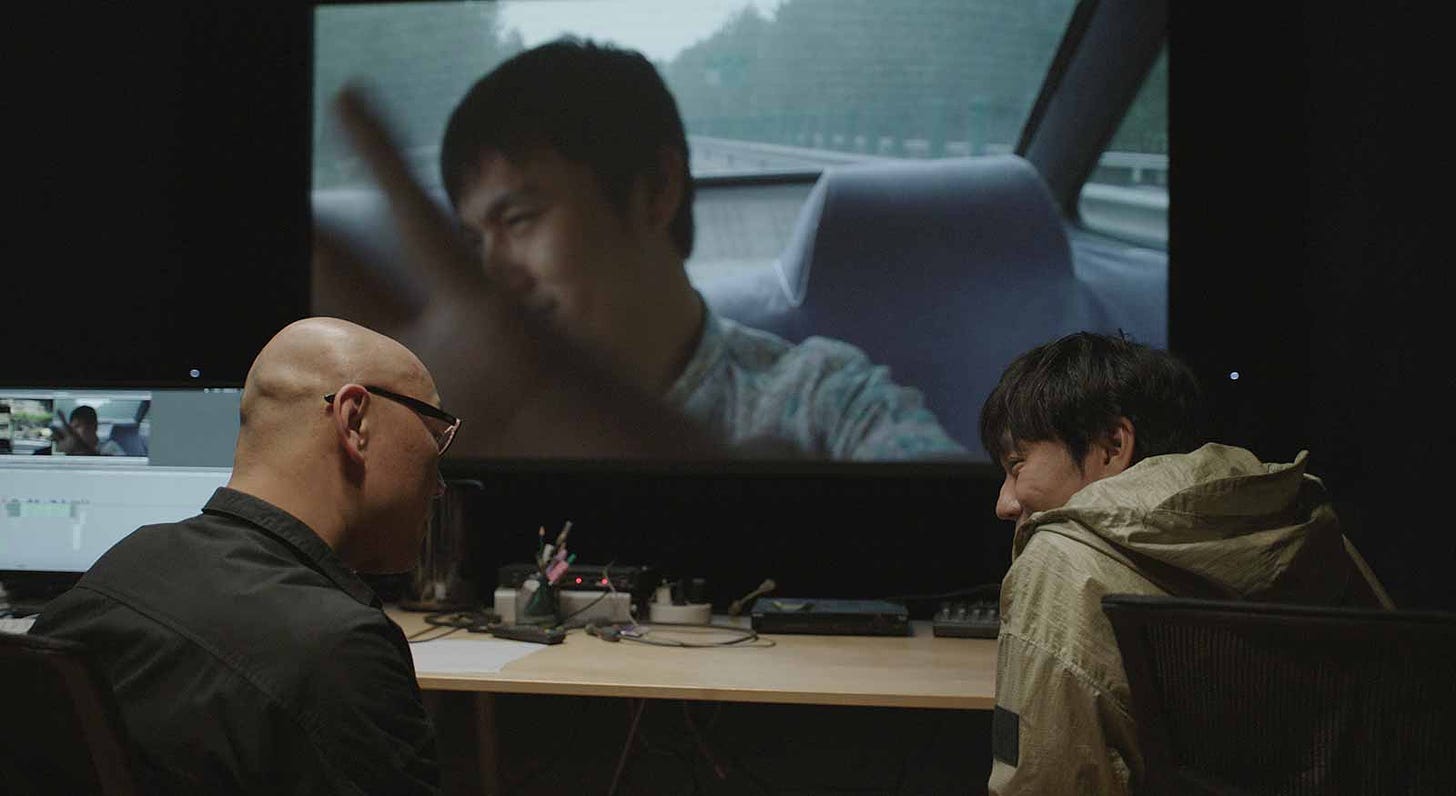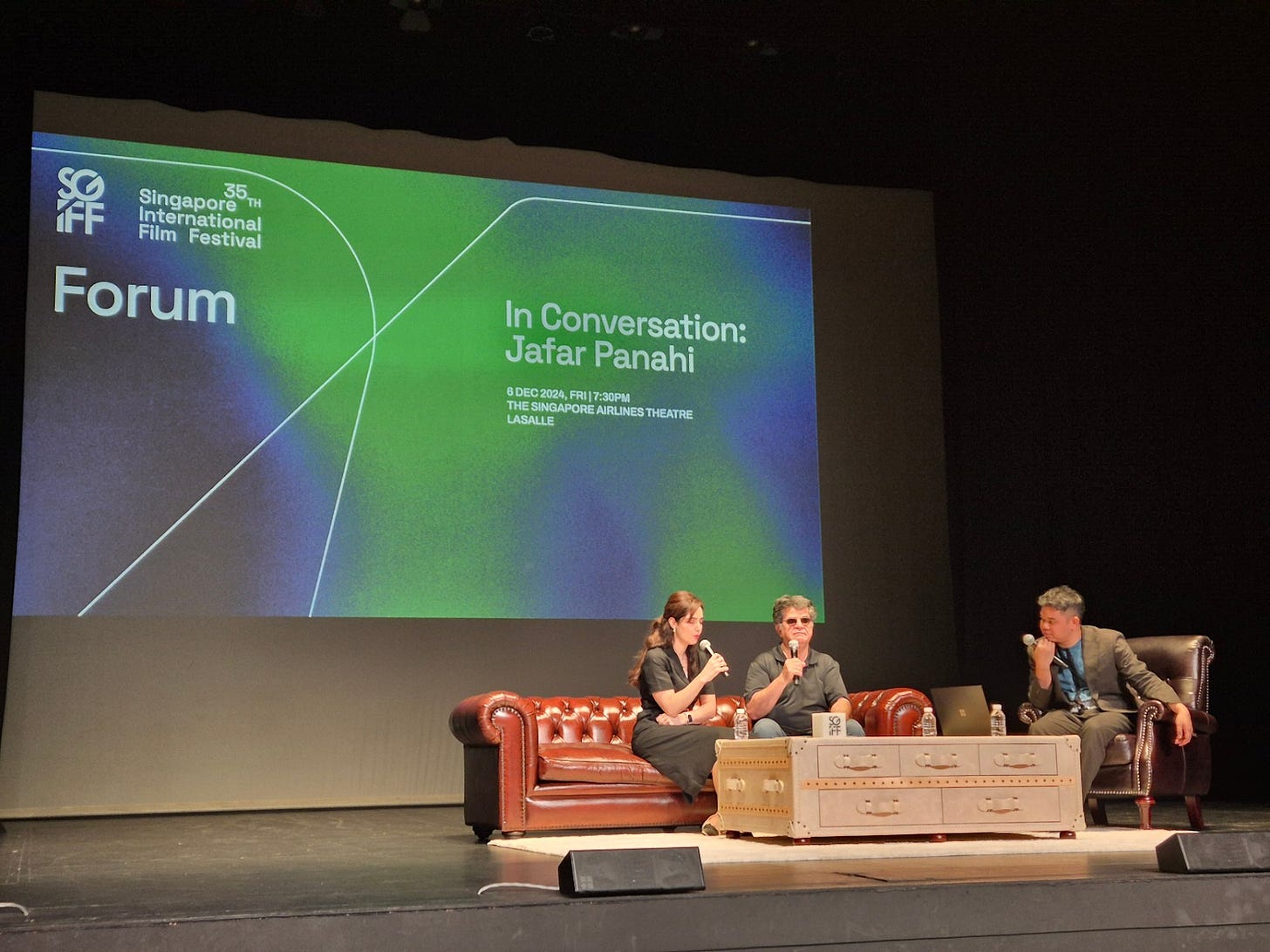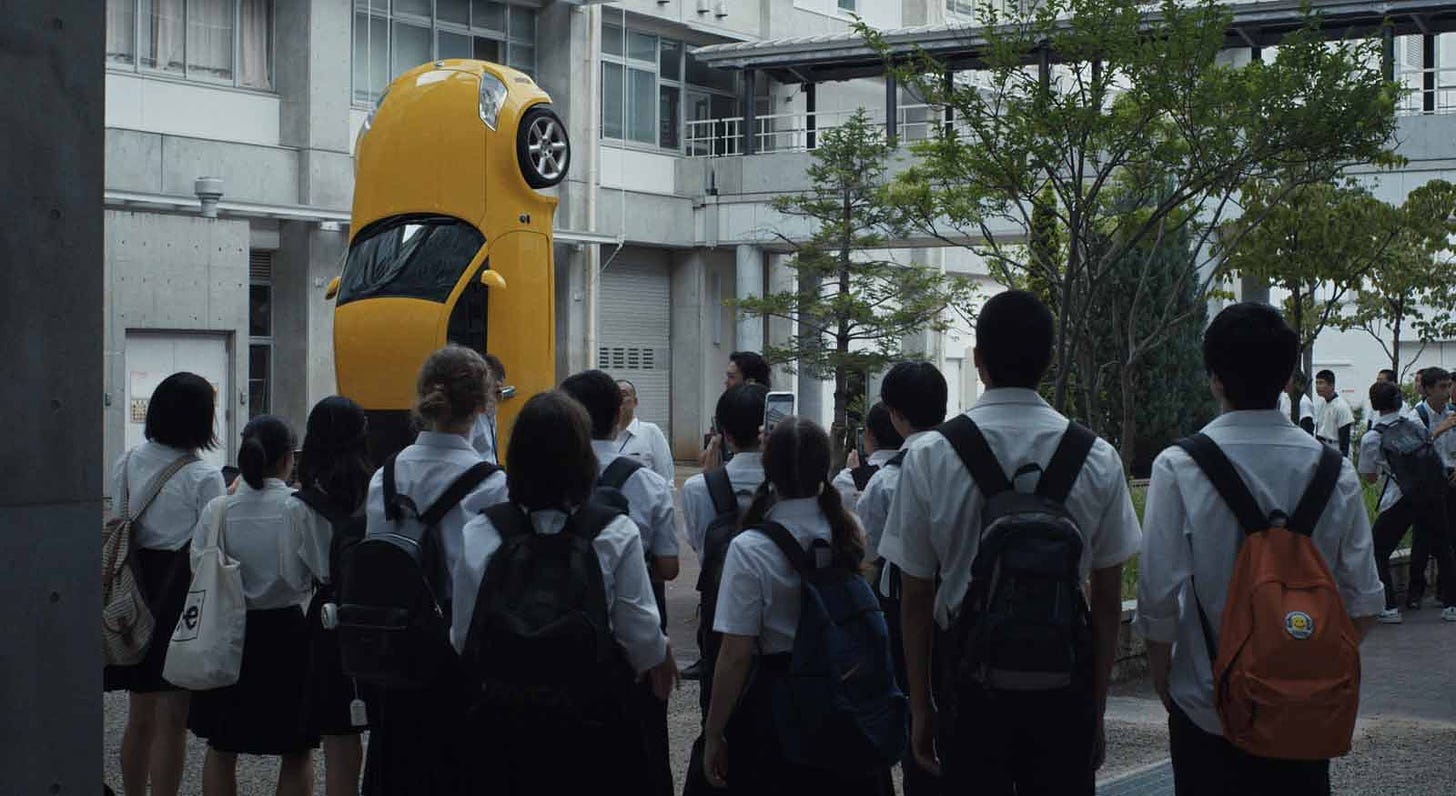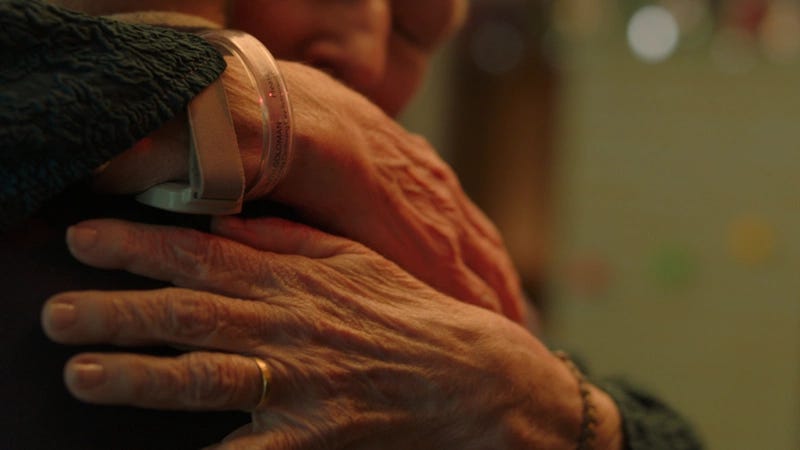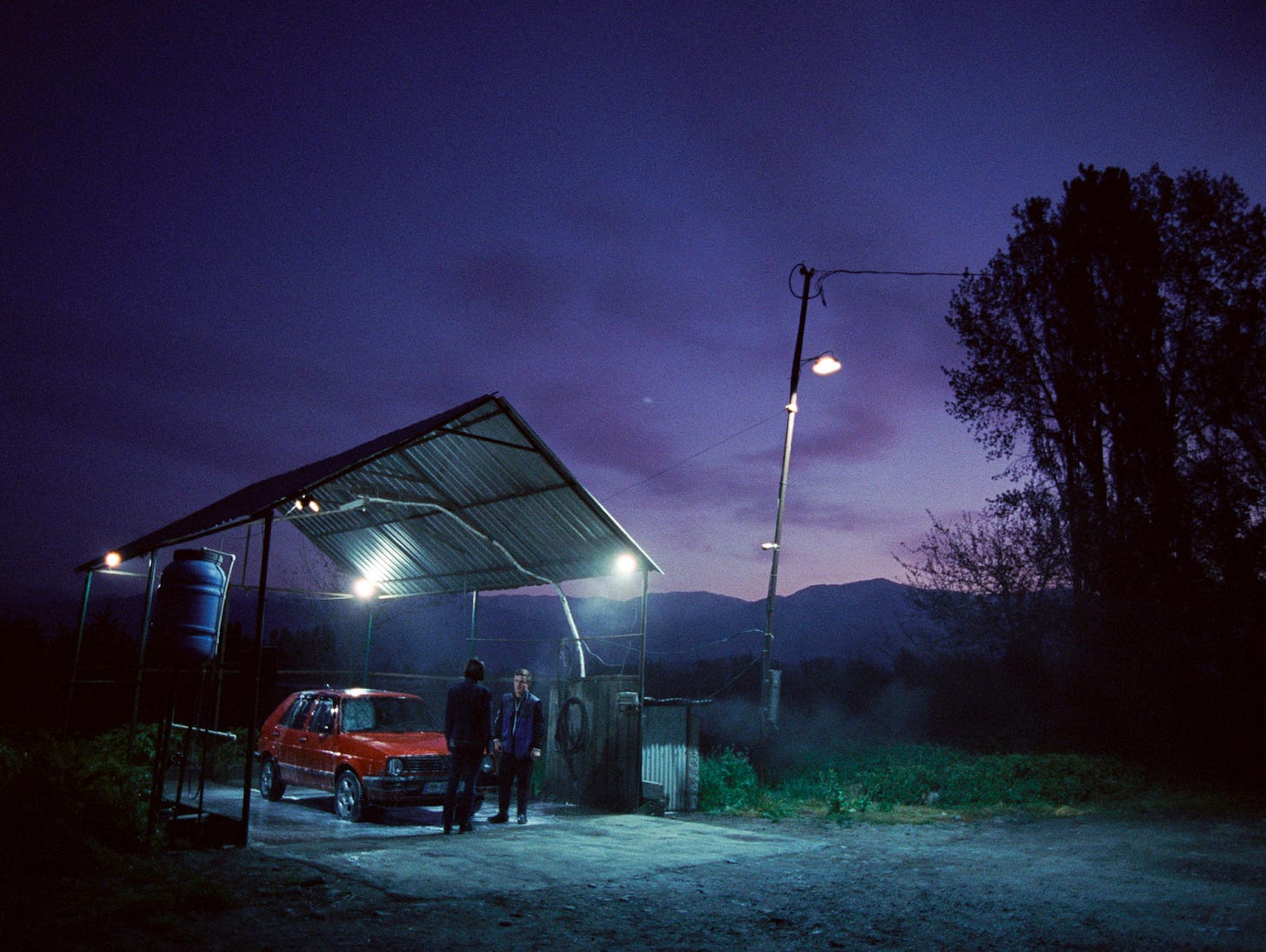SGIFF35 Recap Part 2
I finish up my recap on 2024's SGIFF35, covering An Unfinished Film, HAPPYEND, No Other Land, Time To Be Strong, and more.
Continuing from Part 1, here's Part 2 of my coverage on SGIFF35 to close out my recap. Also, Deep Cut's SGIFF35 dispatch is already live! I discuss all the films I saw with Wilson and Eli, and talk a little more about the festival in general. You can listen to it here or find us wherever you listen to your podcasts. We have an interesting discussion about some overarching themes of the festival, how it features several films banned in their home countries, and also a small discussion about co-productions in the region and the effects it has on the films themselves. I also talk a bit about the refused classification of Daniel Hui's Small Hours of the Night and how ironic it is considering the festival's programming. I think it's worth a listen.
If you're looking for more podcast discussion content, do also check out other SGIFF35 coverage from Chapalang Film Podcast: Part 1, Part 2, with Part 3 coming soon. They also have great interviews with film industry folk from Singapore and the region in their other episodes.
Otherwise, here's the rest of what I caught at SGIFF this year, in the order I watched them. Please drop a comment if you agree, disagree, or have your own thoughts about the films. Let me know your best of the fest!
An Unfinished Film - Directed by Lou Ye
Lou Ye's latest was one of my standouts in the festival for releases from the year. I had only previously seen Suzhou River, but was very impressed by its formal inventiveness. An Unfinished Film scratches that same itch, and is essentially a COVID-19 film concerned with the initial quarantine in China.
While experimental in some formal aspects, the film's narrative is straightforward. A film crew trying to finish production on a stalled film from 10 years ago gets stalled again when the pandemic strikes. As the crew try to return home, many are locked into the hotel they are staying at and spend the first few weeks of the lockdown alone in their rooms, but together.
There's frequent use of video call footage and split screen to show how they communicate and find community even as they cannot physically see each other, culminating in a life-affirming montage as they ring in Chinese New Year away from their families. There were plenty of sniffles in the audience, and I think for a mainland Chinese population watching the film, the film will hit hard. However, it's a pity it is banned in China.
While I was expecting some sort of reflexive element in the film, the film is largely played straight. Its experimental narrative beats come from mixing real world phone footage of the days during the lockdown, both the good and the bad. The film's narrative as well as the real footage on display make you realise that relatedness is the most important human desire. It is impossible to be alive and alone. Loneliness and isolation has been exacerbated because of the pandemic, and I think the world is still very slowly waking up from the pandemic.
No Other Land - Directed by Basel Adra & Hamdan Ballal & Yuval Abraham & Rachel Szor
There is probably no film more important in the festival than No Other Land. It lays out the crisis affecting the Palestinians living in the West Bank as Israeli settlers and military seize their land, and in so doing, their lives. For many around the world, this conflict only became more openly discussed because of the events of 2023, but for Basel and his village, the encroachment on their land has been happening for decades.
Under the guise of building a military training zone (itself a poor excuse), Israeli forces forcibly displace the Palestinians living on their rightful land in the West Bank with guns, vehicles, and the destruction of sources of food, water, and shelter. It was horrifying to watch the footage that Basel and team have collated here, and it makes clear the imbalance of power and human rights between the Palestinian villagers and Israeli settlers hoping to eradicate them.
This should have a wider release. It is essential viewing.
Việt and Nam - Directed by Truong Minh Quy
I had a difficult time accessing Truong Minh Quy's Viet and Nam, which I found to be obtuse in its intentions and fairly monotonous in its storytelling style. I am finding it difficult to succinctly express my thoughts on this in writing, so I'd like to point readers to the podcast episode where I do talk about this at length!
In Conversation: Jafar Panahi
It was an immense privilege to see Jafar Panahi in person for a little conversation. I won't try to summarise what was discussed, but my main takeaway is that we need to break more rules when it comes to filmmaking, whether cinematic or legal. I've been thinking a lot about my relationship with filmmaking, about what subjects will "choose me" and whether I can find something that feels impossible to not do. It's inspiring to hear how Panahi's urge to create films is not at all dampened by the restrictions he is placed under, and is probably strengthened considering his social realist approach to filmmaking.
However, it was a bit of a shame to hear multiple questions fielded about Panahi's predecessor Abbas Kiarostami when Panahi himself is already a legend in his own right. It felt a little disrespectful to Panahi's legacy to keep tying his work to another filmmaker's when we are here trying to celebrate his life's work.
Also, please stop using AI-powered subtitles for foreign language Q&As. It's inhuman, and hurts clarity of understanding. Glad that Panahi and the audience rebelled against it halfway through when it was clear it was unable to translate what was being said into intelligible English.
HAPPYEND - Directed by Neo Sora
Neo Sora's narrative debut turned out to be far simpler than its premise made it out to be. Its near-future dystopian surveillance setting, complete with impending earthquake, seemed to point toward something more political and angry, but it is largely a film about the dissolution of a friendship. Kou and Yuta are best friends from young, but as Kou begins to become drawn to protesting increased surveillance and racism, and Yuta remains obsessed with music, their friendship and extended friend group begin to pull apart as high school comes to an end.
I especially liked the way their rift is created through the establishing of a situation, where each member of the friend group is somehow pulled away. It’s impressive how we mostly understand how Kou and Yuta change their perspectives on each other through reaction shots and facial expressions rather than dialogue. We come to understand their viewpoint because of how they are characterised and are able to project their interior states based on the evolving situation.
There’s really delicate and subtle work from both a writing and acting standpoint that makes their collective friendship feel particularly believable. The film is well acted across the board, with frequent moments of humour and levity that keep the film light and fun, appropriate for a film set in high school. It is also particularly well shot, with influences from Edward Yang and Hou-Hsiao Hsien, and the soundtrack by Lia Ouyang Rusli is also a highlight. A very strong narrative debut!
Time To Be Strong - Directed by Namkoong Sun
I did not have many expectations going into Namkoong Sun's Time to Be Strong, only going in because of a new interest in K-pop this year, and was surprised by how much I was taken by it. This film about three retired K-pop idols retreating to Jeju Island to figure out the next phase of their lives was the only film of the festival to make my eyes water; go figure.
I think the three leads put in authentic, lived-in performances, and the sadness that envelopes them is palpable from the first frame, even before you come to understand the details behind their ennui. There's a Linklater-esque hangout nature to the film as they find fun and work within Jeju island, and their interactions with the locals help them to understand their own experiences from a secondary perspective. The little kindnesses they receive are especially heart-warming, and the ways in which the central three lean on each other and also irritate each other felt well considered. Even with its sad streak, the film is also frequently light-hearted and funny which is a nice counterpoint to their collective depression.
It was also a good reminder that films about something as far-flung from ordinary experience as being a K-pop idol can still be transmuted into something relatable through the medium of film. Films are empathy machines, and humans are built to empathise.
Crimson Gold - Directed by Jafar Panahi
Crimson Gold begins in arresting fashion with the main character Hussein, a pizza delivery man, robbing a jewellery store, before flashing back to show the events leading up to his drastic action. Primarily, the film uses that opening as a catalyst to show the class inequalities that Hussein observes in his work and daily life, and approaches a sort of "justification" for Hussein's motivations behind his burst of violence.
It presents Hussein's delivery travels and preparations for engagement in episodic fashion to articulate a sense of the class structure in Tehran. Hussein is afforded no attention at the jewellery store when purchasing a ring, and when he delivers to rich apartments, he becomes observer to lives he cannot expect to have. While Panahi's point of view is crystalline, there's a languid nature to the plot, with extended dialogue scenes, that might be trying for some viewers, as it was for me after a general lack of sleep during the festival.
Familiar Touch - Directed by Sarah Friedland
Sarah Friedland's narrative debut is a simple but assured one, telling the story of an octogenarian coping with a transition to assisted living as she struggles with memory loss from dementia. Friedland affords a lot of dignity to her main character, played by Kathleen Chalfant, and there's a real sense of grace in the way she directs and tells this story. While the film is a little too placid for me, I think it is in line with Friedland's own experiences in elder care and is deliberately avoiding stylistic sensationalism of dementia narratives like in The Father. The film is intimately observational, and it also shows the light touch that the caregivers must have with those requiring “memory care”, as their realities can quickly shift from one day to the next.
It was also a breath of fresh air during the Q&A segment with Friedland, when the audience took turns sharing stories of caregiving from different countries. We heard about the nature of and public perception of elder caregiving in Singapore, the Philippines, New Zealand, Taiwan, and Indonesia (and even caregiving in Japan done by workers from Indonesia). The audience clearly had a different makeup from the typical film festival audience that was drawn to the subject of Friedland's film. It was a good reminder that films show stories and in doing so, create conversation and sometimes social change.
Friedland also shared that in the pre-production process they taught a filmmaking course with the residents of the assisted living facility they filmed at, and then had those residents also work on the film in the cast and crew. A wonderful idea of intergenerational creative collaboration, that shows we can produce art that works with the subjects of the film in new ways.
The Circle - Directed by Jafar Panahi
In comparison with Crimson Gold, The Circle feels much sharper in its social commentary and stylistic construction. In episodic fashion, the film follows various women, many “ex-prisoners”, some recently escaped from prison, as they deal with the ways that women's lives are oppressed in modern Iran. The issues Panahi raises cut across many domains, whether marriage, abortion, parenthood, freedom, or labour, and many point toward the subjugation of women under the dominant patriarchy of Iran. There are also many subtle stylistic flourishes and motifs that equate women's existence in Iran as one of “imprisonment”, further driving home their lack of agency. The writing is also masterful, linking these episodes together effortlessly as these women cross paths throughout the film, and Panahi quickly immerses us into a new character’s struggle each time.
Wish this and Crimson Gold could have been in better quality for the screenings however; both seemed to be in DVD quality.
The film was also followed by a quick Q&A with Panahi, in which my main takeaway is him saying “self censorship is worse than censorship” and I couldn't agree more. It feels especially salient in Singapore in which staying within explicit and implicit OB markers is par for the course.
April - Directed by Dea Kulumbegashvili
I had not initially intended to see Kulumbegashvili's April for fear that it would slide easily alongside other “miserabilist” fare from its region, but was convinced to give it a shot. The film concerns Nina, an OB-GYN at a hospital that also does illegal abortions in the countryside. Largely a character study, it has small flights toward the fantastical, to paint Nina's psychological interiority as she copes with her seeming duty toward providing this essential service and her own debilitating loneliness.
The film has a few interludes in which Nina imagines herself as a sort of monster, naked with sagging skinfolds all over her body, but these images are largely unexplained and left up to viewer interpretation. There are also frequent digressions where we are shown extended takes of portentous landscapes that I believe serve to heighten the sense of dread. While these are interesting elements in and of themselves, they do feel somewhat tiresome and feel like unnecessary additions to what I think is a worthy story at its core. Of course, this is just my own personal taste, and I know of many who seem to get a lot out of the film and its austere beauty.
Late in the film, Nina's supervisor explains to her that “sometimes the laws do not follow what we think is moral,” which dovetails nicely with an idea that has been knocking around my head due to the confluence of the festival's programming: “legality is not the same as morality.” Laws are merely tools to enforce social order, and order is not intrinsically moral. Especially in Singapore where social order is highly prioritized, sometimes that can be a huge hurdle to the production of artistic work. However, as Osama Mohammed, Lou Ye, Daniel Hui, Truong Minh Quy, Basel Adra, Yuval Abraham, Rachel Szor, Hamdan Ballal, and Jafar Panahi are testament to: don't let that stop you.1
Final Thoughts
The Youth Critic's Programme, which I was a part of during the 2022 edition of the festival (my essay here), was not part of the festival this year which feels like a shame. While there are not many avenues for film criticism or writing as a career in Singapore, the programme at least afforded a chance for a few to experience writing film criticism during the hubbub of a festival in a structured manner. Consider SGIFF's supposed goal to “offer an alternative to junk food”, you need writing about films to critically contend with SGIFF's programming slate. While the Cinephile pass seems to be this year's answer, something more formal alongside can actively encourage people to discuss the films (whether recorded in writing or not) and can help to form community.
Also, to be honest, short form content about films does itself feel like a sort of junk-foodification of film criticism, but, from a marketing perspective, is maybe a necessary evil (see: Deep Cut also producing reels…check out our TikTok at deepcutpod_film). Outside the festival, I think there's a lot we can do to build out Singapore's own cinema culture. If you're at all interested in something in this vein, do drop me a line.
They all made films that have been banned in some way.

